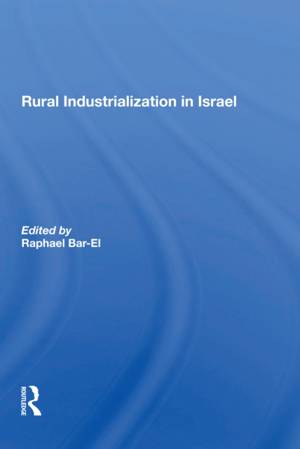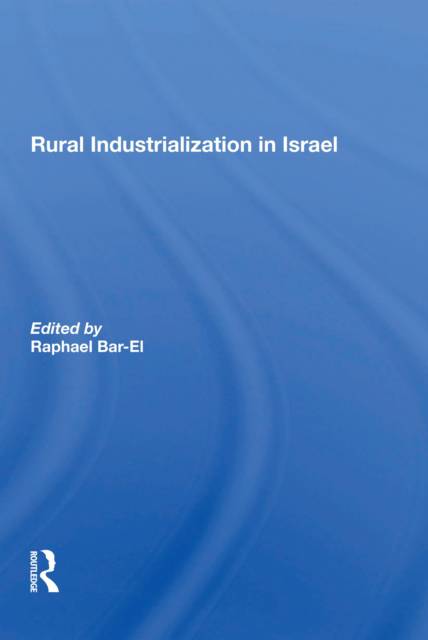
- Afhalen na 1 uur in een winkel met voorraad
- Gratis thuislevering in België vanaf € 30
- Ruim aanbod met 7 miljoen producten
- Afhalen na 1 uur in een winkel met voorraad
- Gratis thuislevering in België vanaf € 30
- Ruim aanbod met 7 miljoen producten
Zoeken
Rural Industrialization in Israel
Raphael Bar-El, Ariela Nesher, Mosche Schwartz, Rachel Finkel
Paperback | Engels
€ 40,95
+ 81 punten
Uitvoering
Omschrijving
Rural development in Israel consists of a unique variety of industrialization experiences that may be instructive for many countries at various stages of development. The social, ideological, political, economic, and organizational precepts that Israel's rural settlements are based on lend themselves to many different approaches. This book deals with industrialization patterns in the kibbutz, the moshav, the non-agricultural village, and the Arab village. Prevailing conditions (size and labor force, availability of skills, infrastructure) and objectives (creation of employment, improvement of living standards) vary depending on the specific type of settlement As a result, optimal policy for rural industrialization is different from village to village. The authors give the general background of and define the specific development objectives for each type of village. They review relevant conditions at the local and regional levels; analyze the individual experiences of industrial development; evaluate economic achievement and attainment of development goals; and determine influential factors. The final aim is to reassess Israeli policies and strategies and offer lessons to other countries undertaking rural industrialization.
Specificaties
Betrokkenen
- Auteur(s):
- Uitgeverij:
Inhoud
- Aantal bladzijden:
- 193
- Taal:
- Engels
Eigenschappen
- Productcode (EAN):
- 9780367301804
- Verschijningsdatum:
- 31/05/2021
- Uitvoering:
- Paperback
- Formaat:
- Trade paperback (VS)
- Afmetingen:
- 147 mm x 211 mm
- Gewicht:
- 272 g

Alleen bij Standaard Boekhandel
+ 81 punten op je klantenkaart van Standaard Boekhandel
Beoordelingen
We publiceren alleen reviews die voldoen aan de voorwaarden voor reviews. Bekijk onze voorwaarden voor reviews.











